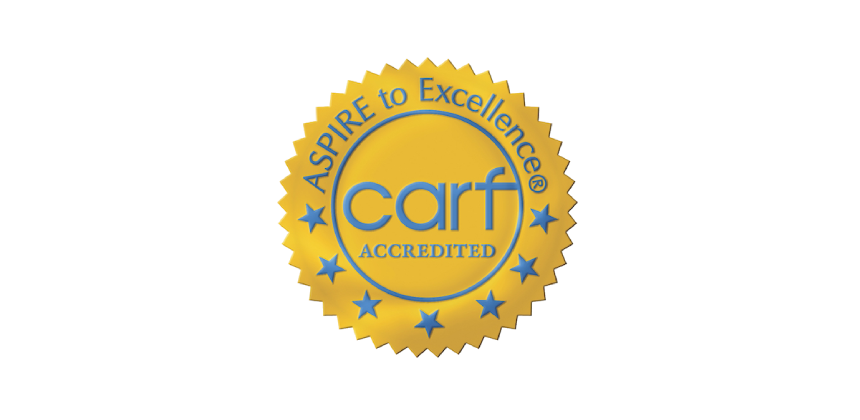About Stroke Rehabilitation
Every year, nearly 800,000 people in the U.S. suffer a stroke. The disease, which occurs when blood flow to the brain is blocked, is one of the leading causes of disability in adults. Stroke recovery can seem overwhelming in the beginning, but your chances of regaining strength and independence increase significantly when you work with top-notch rehabilitation specialists.
The Orlando Health Advanced Rehabilitation Institute draws together the expertise of more than a dozen specialties to build a treatment plan tailored to your unique needs. Our compassionate team members are experts in treating complex strokes. Advanced treatment plans involve next-level technologies, including robotics for mobility training and image-guided procedures for pain management. Our goal is help you meet your own long-term goals and help you get the most out of life.
Our team includes physiatrists, neurologists, neuropsychologists, neurosurgeons, cardiologists, rehabilitation nurses, physical therapists, occupational therapists, recreational therapists, speech and language pathologists, registered dietitians, clinical social workers and case managers.
If you are having a stroke, rapid diagnosis is critical. Knowing what type of stroke you are experiencing can alter the initial treatment strategy. Your doctors will also need to rule out other potential problems, including seizures, migraines, heart problems and drug overdose. Diagnosis usually takes place in an emergency room, starting with a physical and neurological examination. This may be followed up with a variety of tests, including:
Blood tests: These tests will assess how fast your blood clots, look for infection and measure blood sugar levels.
Computed tomography (CT) scan: This test uses a series of X-rays and a computer to create highly detailed images of your brain. It can reveal the location of the stroke and extent of brain damage.
Magnetic resonance imaging (MRI): Radio waves and powerful magnets are used to create detailed images of your brain. These scans, often with the help of special contrast dyes, can peer into your brain with greater accuracy than a CT scan.
Computed tomographic angiography (CTA): Special dyes are injected into a vein to provide greater contrast in images of blood vessels to look for abnormalities.
Magnetic resonance angiography (MRA): A magnetic resonance scanner is used to examine blood vessels to look for a blocked artery or signs of bleeding in the brain.
Echocardiogram: Soundwaves are used to create detailed images of the heart to look for the source of blood clots that may have traveled to the brain.
When a stroke damages your brain, it kills brain cells that were responsible for performing a wide range of tasks. This damage can significantly hamper various abilities, including eating, talking, bathing, walking and thinking. Rehabilitation focuses on overcoming those impairments, often by getting other brain cells to help with those tasks. Rehabilitation efforts should start as soon as possible after a stroke – within 24 hours in some cases.
The Orlando Health Advanced Rehabilitation Institute is a leader in providing the care needed to help you regain as much independence as possible following a stroke. We are accredited by CARF (Commission on Accreditation of Rehabilitation Facilities), offering highly specialized care that will help you achieve your best outcome. Our multidisciplinary team will work with you and your family to build an intensive treatment plan to maximize your potential and boost your recovery.
Among the rehabilitation options:
- Physical therapy helps with mobility and balance
- Speech therapy assists with swallowing and communication
- Occupational therapy works on everyday tasks, including bathing and getting dressed
- Pet therapy involves working with animals to improve motor skills and relieve stress
- Recreational therapy helps identify new activities to enjoy
As your rehabilitation journey continues, you will eventually return to life outside of a full-time rehabilitation facility. When that happens, effective outpatient care is critical to your continued improvement. Orlando Health is committed to ensuring and supporting a smooth transition that helps you meet your personal goals.
Our team will work closely with you to develop a care plan utilizing our highly specialized outpatient centers. Our team will work with you and your family to design a customized treatment plan with functional and achievable goals.
You will work one-on-one with your therapist throughout your journey to build daily living skills to help you achieve the highest level of functional independence. Outpatient treatment will build on your earlier successes and keep you moving toward your highest level of functional independence, in terms of mobility, daily living and speech.
Among the treatments:
- Seating and positioning individualized evaluation and treatment
- Functional mobility and activities of daily living (ADL) retraining
- Bowel and bladder retraining
- Functional electrical stimulation
- Use of robotic exoskeletons
- Gait training
We also offer and support community programs designed to help you transition and get the most out of life. They include:
- Dining programs and functional outings
- Group therapy for individuals with aphasia
- Patient reunions
- Stroke support group
We provided Scope of Service documents that detail each of our accredited rehabilitation programs. Within these documents, you’ll find very detailed answers to questions, such as:
- How does someone become a patient or get admitted?
- Who is an appropriate candidate for the Spinal Cord Injury Program?
- What type of specialists work at Orlando Health Advanced Rehabilitation Institute?
- What services are offered for brain injury patients?
- How does Orlando Health Advanced Rehabilitation Institute help stroke patients recover?
Outcomes Data
The Orlando Health Advanced Rehabilitation Institute outperforms the national average when it comes to helping patients return to the community.
-
Discharged Back to the Community
86.9% of our patients are discharged back to the community (national average is 82.2%)
-
Specific to Stroke Rehabilitation
We discharge 86.2% of our stroke patients back to the community, compared with the national average of 79.9 percent

Commitment to Excellence
The Orlando Health Advanced Rehabilitation Institute has earned national recognition for our inpatient rehabilitation program and treatment of brain injuries, strokes and spinal cord injuries.

